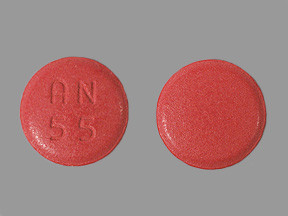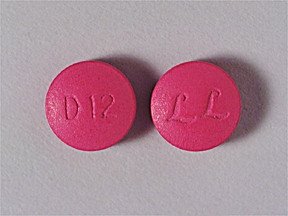DEMECLOCYCLINE - ORAL
PHONETIC PRONUNCIATION: (dem-eh-klo-SYE-kleen)
COMMON BRAND NAME(S): Declomycin
GENERIC NAME(S): demeclocycline HCl
Uses
USES: Demeclocycline is used to treat a wide variety of bacterial infections, including those that cause acne. This medication is known as a tetracycline antibiotic. It works by stopping the growth of bacteria. This antibiotic treats only bacterial infections. It will not work for viral infections (such as common cold, flu). Using any antibiotic when it is not needed can cause it to not work for future infections.
How to use DEMECLOCYCLINE - ORAL
HOW TO USE: Take this medication by mouth, usually 2 to 4 times a day or as directed by your doctor. Demeclocycline works best when taken on an empty stomach at least 1 hour before or 2 hours after a meal. Take each dose with a full glass of water (8 ounces or 240 milliliters) unless your doctor directs you otherwise. Do not lie down for at least 10 minutes after taking this drug. For this reason, do not take it right before bedtime. If stomach upset occurs, ask your doctor if you can take this medication with food. Take this medication 2 to 3 hours before or after taking any medications containing magnesium, aluminum, or calcium. Some examples include quinapril, certain forms of didanosine (chewable/dispersible buffered tablets or pediatric oral solution), vitamins/minerals, and antacids. Dairy products (e.g., milk, yogurt), calcium-enriched juice, sucralfate, bismuth subsalicylate, iron, and zinc are also included. These products bind with demeclocycline, preventing its full absorption. The dosage is based on your medical condition and response to treatment. When treating children over 8 years of age, the dosage is also based on weight. For the treatment of infection, children should not take more than 600 milligrams of this medication per day. For the best effect, take this antibiotic at evenly spaced times. To help you remember, take this medication at the same time(s) every day. If you are taking this medication to treat an infection, continue to take it until the full prescribed amount is finished, even if symptoms disappear after a few days. Stopping the medication too early may result in a return of the infection. Inform your doctor if your condition persists or worsens. If you are using this medication to treat SIADH, you should notice an increase in the amount of urine within 5 days.
Side Effects
Precautions
Interactions
Overdose
Images

- color
- red
- shape
- round
- imprint
- logo and 143

- color
- red
- shape
- round
- imprint
- logo and 144

- color
- red
- shape
- round
- imprint
- logo and 144

- color
- red
- shape
- round
- imprint
- logo and 143
Reviews
Faq for DEMECLOCYCLINE - ORAL
Demeclocycline is an antibiotic medication that is used to treat certain bacterial infections, such as urinary tract infections, respiratory tract infections, and infections of the skin.
Demeclocycline works by stopping the growth of bacteria. It does this by interfering with the production of proteins that are necessary for bacteria to survive and replicate.
Common side effects of Demeclocycline may include nausea, vomiting, diarrhea, stomach upset, or loss of appetite. It may also cause sensitivity to sunlight, so it is important to use sunscreen and avoid prolonged sun exposure.
Demeclocycline should be taken with a full glass of water, on an empty stomach, at least 1 hour before or 2 hours after a meal. It is important to follow the dosing instructions provided by your doctor and to complete the full course of treatment, even if you start feeling better.
It is generally recommended to avoid alcohol while taking Demeclocycline, as it may increase the risk of certain side effects such as dizziness, drowsiness, or liver damage. It is best to consult with your doctor or pharmacist for specific advice.
Demeclocycline is not typically recommended for use in children under the age of 8, unless specifically prescribed by a doctor. It may cause permanent discoloration of teeth and affect bone development in young children.
Demeclocycline is generally not recommended during pregnancy or breastfeeding, as it may harm the developing fetus or the nursing infant. It is important to discuss the potential risks and benefits with your doctor before taking this medication.
Yes, Demeclocycline may interact with certain medications, including antacids, iron supplements, blood thinners, and certain antacids or anti-diarrheal medications. It is important to inform your doctor or pharmacist about all the medications you are taking to avoid potential drug interactions.
If you miss a dose, take it as soon as you remember. If it is near the time for your next dose, skip the missed dose and resume your regular dosing schedule. Do not double the dose to catch up.
Disclaimer
IMPORTANT: HOW TO USE THIS INFORMATION: This is a summary and does NOT have all possible information about this product. This information does not assure that this product is safe, effective, or appropriate for you. This information is not individual medical advice and does not substitute for the advice of your health care professional. Always ask your health care professional for complete information about this product and your specific health needs.



No Reviews Yet